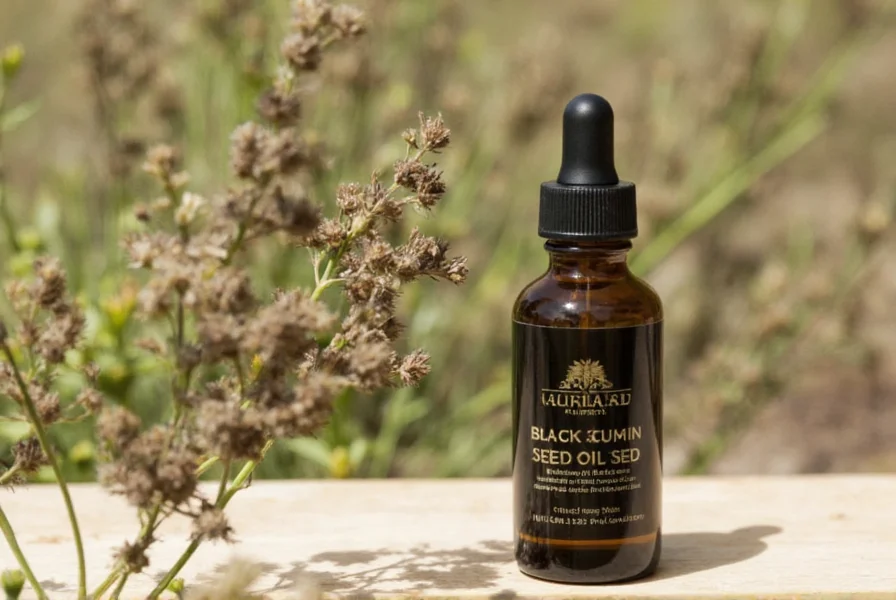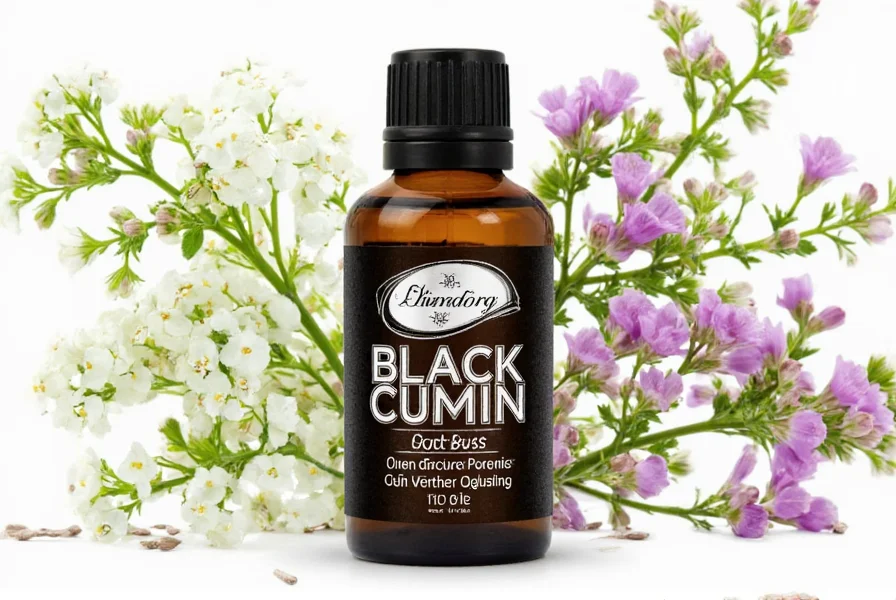Black cumin oil, scientifically known as Nigella sativa oil and often called black seed oil, has been used for centuries in traditional medicine systems across the Middle East, Asia, and Africa. This distinctive oil contains thymoquinone as its primary bioactive compound, which researchers believe contributes significantly to its potential health properties. Modern scientific investigation has begun validating some traditional uses while revealing new applications for this versatile botanical extract.
The Science Behind Black Cumin Oil
Black cumin (Nigella sativa) belongs to the Ranunculaceae family and produces small black seeds that yield approximately 30-40% oil when properly extracted. The oil's composition varies based on growing conditions and extraction methods, but typically contains:
| Primary Compound | Percentage Range | Significance |
|---|---|---|
| Thymoquinone | 0.5-1.5% | Main bioactive compound with antioxidant properties |
| p-Cymene | 20-40% | Contributes to aromatic profile and potential benefits |
| α-Thujene | 5-15% | May support immune function |
| Carvacrol | 1-10% | Antimicrobial properties |
Unlike regular cumin (Cuminum cyminum), black cumin represents a completely different botanical species with distinct chemical properties. This distinction matters when researching black cumin oil benefits for skin or other applications, as the two oils have different therapeutic profiles.
Evidence-Based Health Applications
While traditional medicine has used black cumin oil for various purposes, modern research helps identify which applications show the most promise:
Immune System Support
Multiple studies suggest black cumin oil may modulate immune function. A 2021 systematic review published in Phytotherapy Research analyzed 27 clinical trials and found evidence that black cumin oil for immune system support shows promise, particularly in enhancing certain immune cell activities. However, researchers noted that optimal dosing protocols require further investigation.
Skin Health Benefits
Topical application of properly diluted black cumin oil demonstrates potential for various skin conditions. Research in the Journal of Dermatological Treatment (2022) found that a 5% black cumin oil formulation improved symptoms in 65% of participants with mild to moderate acne over an 8-week period. When exploring black cumin oil benefits for skin, look for products specifically formulated for topical use with appropriate carrier oils.

Inflammation Management
The thymoquinone in black cumin oil appears to influence inflammatory pathways. A randomized controlled trial in Nutrition Journal (2023) reported that participants taking 2.5 mL of black cumin oil daily showed significant reductions in inflammatory markers compared to placebo after 12 weeks. This research supports traditional uses of black cumin seed oil uses for inflammatory conditions, though larger long-term studies are needed.
Practical Usage Guidelines
Understanding how to properly use black cumin oil ensures both safety and effectiveness:
Dosage Recommendations
Most clinical studies use between 1-2.5 mL (approximately 1/4 to 1/2 teaspoon) of pure black cumin oil daily. Start with lower doses (0.5-1 mL) to assess tolerance before increasing. For topical applications, always dilute with a carrier oil like coconut or jojoba oil at a ratio of 1 part black cumin oil to 3-5 parts carrier oil.
Quality Considerations
When selecting products, look for:
- Cold-pressed extraction method
- Organic certification
- Opaque packaging to protect from light degradation
- Third-party testing documentation
- Clear labeling of Nigella sativa as the botanical source
Be cautious of products making exaggerated claims about thymoquinone health benefits without scientific backing. Reputable manufacturers provide realistic expectations based on current research.
Safety Profile and Considerations
While generally well-tolerated, black cumin oil may cause issues for certain individuals:
Potential Side Effects
Common mild reactions include:
- Stomach upset when taken orally
- Skin irritation with topical application
- Mild headache in sensitive individuals
More serious concerns involve potential interactions with medications. Black cumin oil may enhance the effects of blood-thinning medications and diabetes medications. Always discuss black cumin oil side effects with your healthcare provider before starting regular use.
Contraindications
Avoid black cumin oil if:
- You're pregnant (may stimulate uterine contractions)
- You have upcoming surgery (may affect blood sugar and clotting)
- You're taking immunosuppressant medications
- You have known allergies to plants in the Ranunculaceae family
Incorporating Black Cumin Oil Into Your Routine
For those interested in exploring how to use black cumin oil safely:
Internal Use Options
- Mix with honey or warm water for easier consumption
- Add to smoothies (start with small amounts due to strong flavor)
- Use in salad dressings with lemon juice and olive oil
Topical Applications
For skin concerns, create a simple blend:
- Combine 1 teaspoon black cumin oil with 3 teaspoons carrier oil
- Add 2-3 drops of lavender essential oil (optional)
- Apply to clean skin twice daily
- Perform patch test before full application
Research Status and Future Directions
While promising, current research on black cumin oil has limitations. Many studies use animal models or small human samples. The strongest evidence supports its antioxidant and anti-inflammatory properties, while claims about specific disease treatment require more rigorous investigation. When evaluating nigella sativa oil research, look for peer-reviewed clinical trials rather than anecdotal reports.
Researchers continue investigating black cumin oil's potential applications for metabolic health, respiratory conditions, and neurological support. However, consumers should maintain realistic expectations and view it as a complementary approach rather than a standalone treatment for medical conditions.
Frequently Asked Questions
What's the difference between black cumin oil and regular cumin?
Black cumin (Nigella sativa) and regular cumin (Cuminum cyminum) are completely different plants from different botanical families. Black cumin seeds are small, black, and crescent-shaped, while regular cumin seeds are larger, lighter brown, and straighter. Their chemical compositions differ significantly, with black cumin containing thymoquinone as its primary active compound, whereas regular cumin contains cuminaldehyde.
How long does it take to see results from black cumin oil?
Results vary depending on the application. For skin conditions, noticeable improvements may appear after 4-8 weeks of consistent topical use. When taken internally for general wellness, some people report subtle changes in energy or immune response within 2-4 weeks. However, scientific studies typically measure outcomes over 8-12 week periods to observe statistically significant effects.
Can I use black cumin oil while taking prescription medications?
Black cumin oil may interact with certain medications, particularly blood thinners, diabetes medications, and immunosuppressants. The oil can enhance the effects of these drugs, potentially leading to complications. Always consult your healthcare provider before combining black cumin oil with prescription medications to avoid adverse interactions.
What's the best way to store black cumin oil?
Store black cumin oil in a cool, dark place away from direct sunlight and heat sources. Refrigeration after opening extends shelf life and preserves the active compounds. Use opaque glass containers rather than plastic, as the oil's compounds can degrade plastic over time. Properly stored, quality black cumin oil maintains potency for 12-18 months.











 浙公网安备
33010002000092号
浙公网安备
33010002000092号 浙B2-20120091-4
浙B2-20120091-4